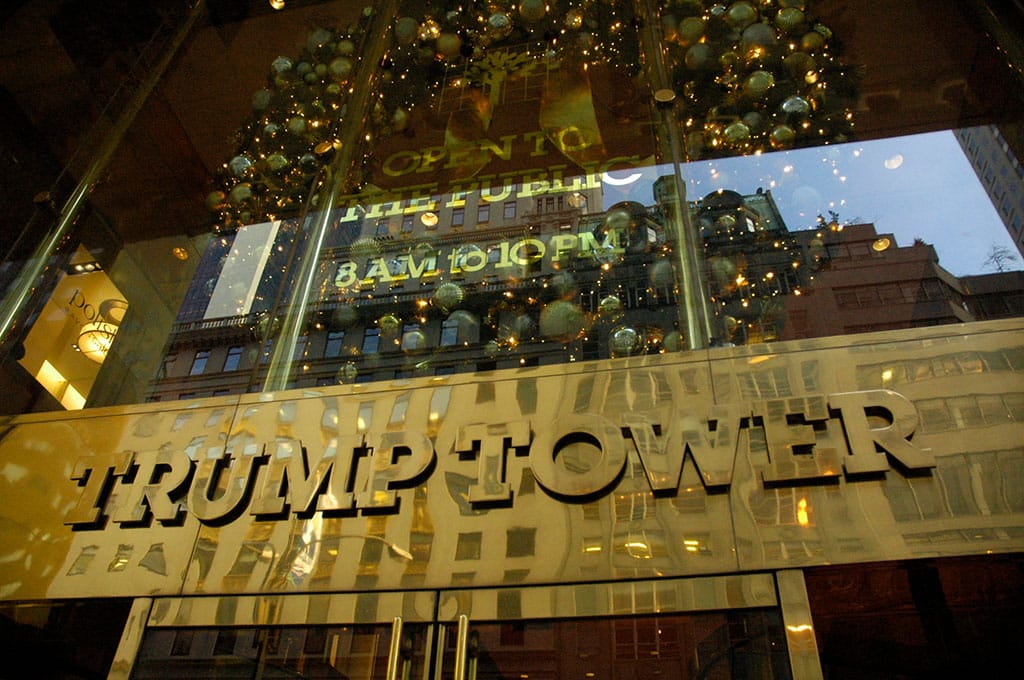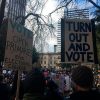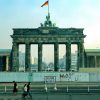
More than three decades ago the political scientist Robert Putnam developed a theory of conflict, based on game theory, involving ‘two levels’, the foreign or international level, and the domestic level: in order to broker agreements, negotiators have to reach a winning consensus among all the players on the international stage before seeking ratification on the domestic stage. With everything that is going on it is unlikely the Trump Administration will achieve anything at either of these levels. It is true, however, that a high degree of confidentiality is required for such diplomatic tasks (for which a considerable degree of integrity is also needed), something that may have been lost.
It is not only the possibility of impeachment that is undermining the credibility of the US but also the shadow foreign policy being conducted by Trump, together with the one he openly espouses. Lest it be forgotten, the central charge in the case against him –which still requires an investigation for a possible impeachment– is to have exerted pressure on the Ukrainian President, Volodymyr Zelensky, to launch an investigation into his potential political rival Joe Biden and his son, and therefore to have used his office and his foreign policy to obtain political leverage for himself, not for the interests of the country, in possible breach of his constitutional duties. This goes beyond Tip O’Neill’s famous claim that ‘all politics is local’.
The complaints are bringing a great deal more to light. It is clear that Trump does not believe in the need for allies, despite the fact that even the US, powerful as it may be in so many areas, has come up short in many of the challenges it faces, whether diplomatic, technological or military. The (incomplete) transcript of his conversation with Zelensky paints a terrible portrait of the Europeans, especially Angela Merkel and Emmanuel Macron, whom he tries to undermine with false statements about their failure to support Ukraine.
Even his appeals to China to investigate the Bidens –rebuffed by Beijing– undermine the policy he is trying to pursue against the Asian colossus. Expressing his indifference to Russian interference in US elections does not help either.
One question is: which foreign policy is Trump going to pursue under this pressure? For now, in what has been a chaotic policy, he has no major successes to claim. The rapprochement with North Korea has not yet delivered, and seems unlikely to in the near future. He is reviewing his trade policy with China (unlike the technology policy), because it is a war in which all lose out and the travails of the global and US economy seem to demand it. The truce that has been reached seems to suggest so. The tariffs imposed on Europe add to the rift. And his Middle East policy is floundering, like his mismanagement of the Kurdish question, which is contradictory and largely inherited from the Obama Administration. Announcing that it is ‘time for us to get out’ and that it is for others ‘to figure the situation out’, he has unleashed Turkey against those who had been the greatest allies of the US in the fight against Daesh. Venezuela is another case in point.
On Iran, after withdrawing from the agreement that was preventing the country from equipping itself with nuclear weapons, Trump has been cautious in terms of using US military force (although he has resorted to it at times). He seems to have convinced the Europeans to support him in the search for a new deal that in addition to the nuclear issue would include regional stability and non-support for terrorism. In the wake of the attacks –of disputed origin– on two oil tankers in the Gulf, and the destruction of strategic Saudi plants with drones and missiles, Trump has so far avoided responding militarily.
Of course, in order to understand his foreign policy, it needs to be grasped that the overriding interest guiding this President is his own interest, in other words everything that helps him get re-elected. Dana Milbank argues that it was never a case of ‘America first’, but rather ‘Trump first’. This means it is unlikely, in a country that does not seek new military commitments, that he would get involved in risky engagements. It may be, as Robert E. Kelly of the Lowy Institute argues, that the impeachment efforts prompt even more unexpected twists, but if proceedings go ahead, with the President obsessed by them, his foreign policy may stabilise.
Trump is not a Neocon, those who wanted to use force to change the world and export democracy (although they failed in Iraq). He sacked John Bolton as National Security Advisor, who was one of them. Nor is he a conservative, or an isolationist. But he has cut the State Department in terms of personnel, budget and political influence, and has criticised the intelligence services. Rather he is an unadorned nationalist, as he bluntly stated in his speech to the UN General Assembly (‘the future belongs to patriots’), or a transactional opportunist who approaches foreign policy as though he were a tradesman rather than a negotiator. And he has partners and allies in the world –governments and electorates– that distrust him more and more (not that they have been up to the task in Syria either). It is also a foreign, and domestic, policy that can be increasingly manipulated from abroad, as Walter Russell Mead points out.
In other words, it may be that Trump’s policies, both open and covert, lead to ‘America less’, with a less influential US that is less capable of maintaining a degree of regional and global stability. Is a rebound or ricochet effect already being felt, involving ‘Europe more’? Perhaps Trump is awakening a Europe that, as Josep Borrell says, ‘has to learn to use the language of power’. But language, in the absence of capabilities and unity, is not enough. Nor can Europe go it alone.


